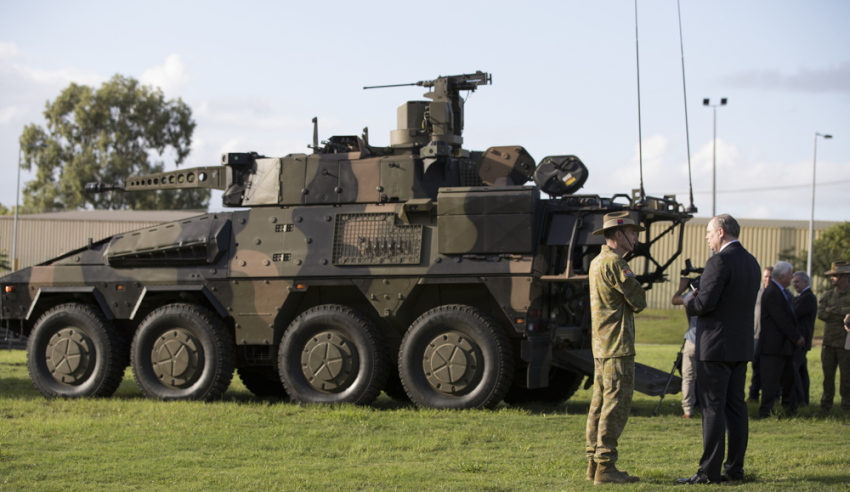The official announcement that Rheinmetall secured the $5.2 billion LAND 400 Phase 2 contract, which will see the Australia’s ASLAV fleet replaced by over 200 Boxer CRVs, has been applauded by the Army.
To continue reading the rest of this article, please log in.
Create free account to get unlimited news articles and more!
Much of the focus of the LAND 400 Phase 2 debate has centred around the benefits of establishing an industry and building the vehicles in Queensland or Victoria, crowding out the discussion of the Army's capability needs and the benefits of both the Boxer CRV and its competitor, the AMV35.
Protection, lethality and mobility were the three main requirements tested, with Prime Minister Malcolm Turnbull standing firm that Rheinmetall's vehicle was chosen "based on the capability of the vehicle both in terms of lethality and survivability".
Chief of Army Lieutenant General Angus Campbell said the announcement of the Boxer CRVs selection marked "a special day for the Army" and its future capabilities, and was welcome news after three years of rigorous testing.
"Can I just acknowledge the hard work that many, many people across the Defence and Army teams have put together to bring to government," LTGEN Campbell said.
"I am absolutely delighted at the vehicle that the Army is going to receive, the decision that has been made, it is an outstanding addition to Army capability and a quantum leap forward in our capacity to prosecute the mission given to us by our government and to take care of our people in doing so.
"I look forward to a long and very productive relationship between Army, Defence and Rheinmetall as we use these vehicles and develop the capability over the coming decades."
Defence Industry Minister Christopher Pyne alluded to the National Security Committee's decision matching that of the recommendation from the Army, which has not always been the case in large defence procurements.
"There's only one recommendation from the Department of Defence, it wasn't a ‘six of one, half a dozen of the other’ choice of the National Security Committee," he said.
"It was a very clear recommendation based on capability and technical assessment."
Minister Pyne also talked up the benefits of the $5.2 billion project, insisting the benefits will extend to states other than Queensland.
"The nature of these very large projects – and this is the biggest acquisition in the Army in its history – is that they're not confined to one geographical area," Minister Pyne said.
"Rheinmetall chose Queensland to be the base of the construction but that's $1.8 billion out of a $2.8 billion Australian industry content as part of the acquisition program of $5.2 billion."
The government has tipped up to 1,450 jobs will be created, with at least 330 in Queensland, 170 in Victoria and 140 in NSW during acquisition.
The CRVs, to be built in Brisbane, will undertake a range of missions, from regional stability and peacekeeping through to high-threat operations. Over the 30-year life of the vehicles, Australian industry will secure two thirds, or $10.2 billion, of the total investment in acquiring and maintaining the fleet, the government said.

 Login
Login







